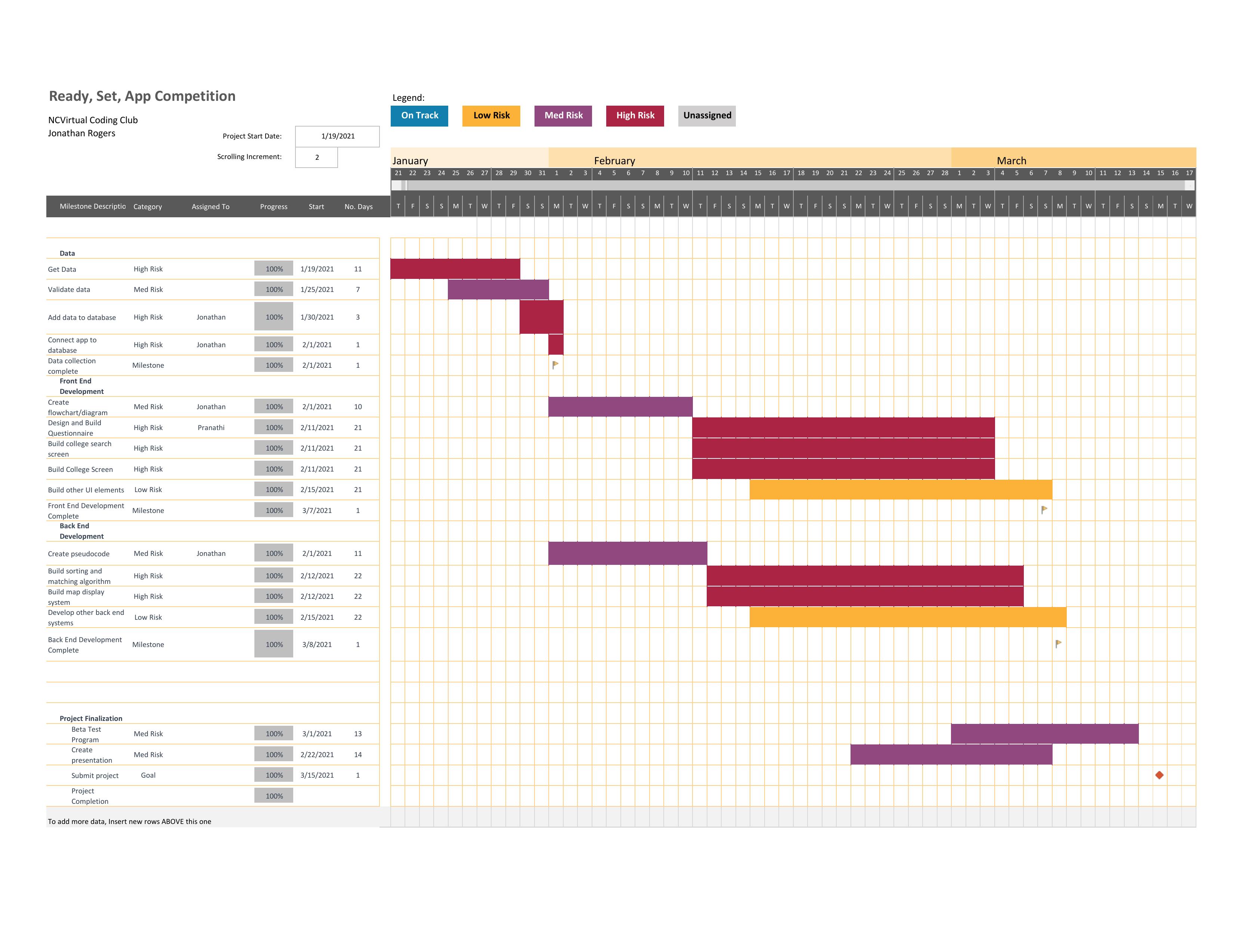Introduction
In late 2020, I was informed of an opportunity known as the Ready, Set, App Hackathon, a Lenovo sponsor event aimed at supporting student growth in Information Technology. The description is as follows:
The North Carolina Business Committee for Education’s Ready, Set, App! challenge is a mobile app development competition for high school students sponsored by Lenovo. Student groups are asked to develop a mobile app using a mobile app development platform (e.g., MIT App Inventor) to solve a problem in their community or school. Ready, Set, App! focuses on three primary pillars:
- Mobile App Development
- Professional and Personal Development
- Interpersonal and Soft Skills Development
I was able to complete this project with the NCVirtual Coding Club. Our Android Application was called College Atlas.
Competition Details
RSA is designed in three phases:
- Phase 1: Registration
- Phase 2: Develop + Demo + Pitch Group Reflection
- Phase 3: Finalist Round
What to create: develop a mobile app using a mobile app development platform (e.g., MIT App Inventor) to solve a problem in their community or school. Ready, Set, App! focuses on three primary pillars:
- Mobile App Development
- Professional and Personal Development
- Interpersonal and Soft Skills Development
What to submit:
- App Pitch + Demo
- Group Reflection- Answer 3 out of the 6- The diversity questions is mandatory for each group.
- Upload your APK file to Devpost
- Complete and enter information into all required fields of the submission form on hackathon site.
More information can be found at Devpost and NC Student Connect.
Project
Application Description
According to the National Center for Education Statistics, there are over 6500 post-secondary institutions in the United States. With the amount of time, money, and effort spent on college, finding the right one is critical. Most students find their schools by meeting with college advisors or spending hours searching the internet. On the other hand, CollegeAtlas will allow students to better navigate their college choices as they pursue their post-secondary endeavors. With CollegeAtlas, students will input their preferences by answering a series of questions and allowing the app to determine the best college(s) based on their responses. CollegeAtlas will be a solution for students who, like our coding club members, are on the go and pressed for time.
Team Members


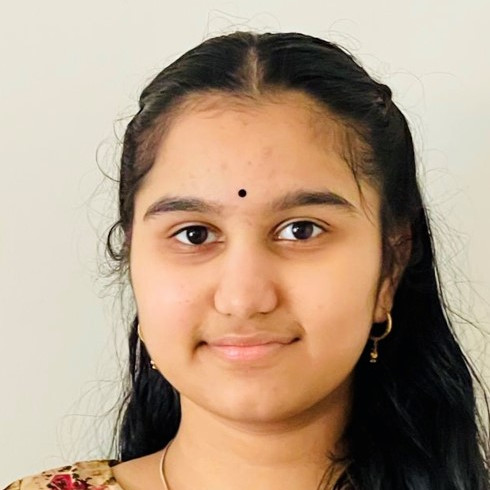
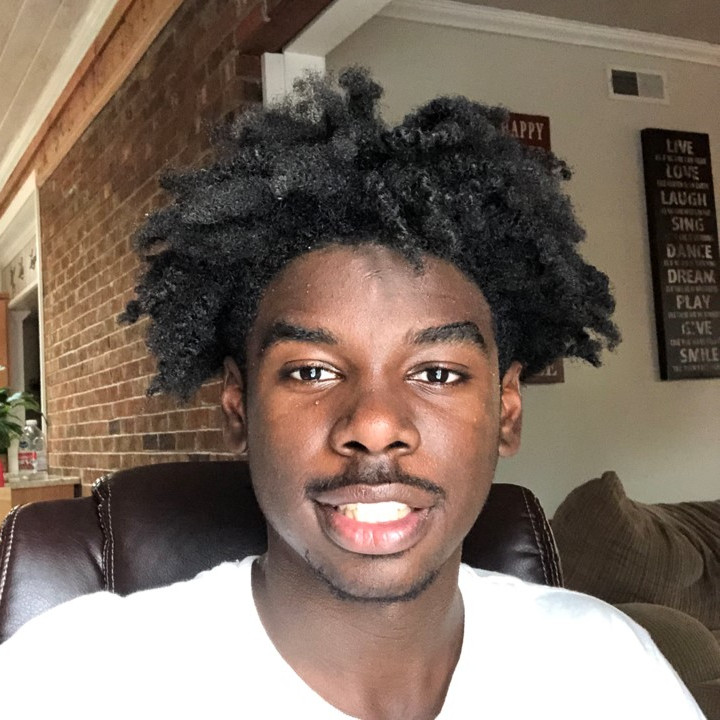


Software Used
Our team used two main platforms, MIT App Inventor and GitHub. As most of the team had never built an Android application before, we used MIT App Inventor to build our Android Application. When changes were made, we used GitHub to manage versions and keep track of changes.
Project Timeline
Front End Development
The user interface is a very important aspect of any application, so ensuring an app looks appealing but usable is very important. That is why our team worked hard to develop a clean user interface that users would enjoy using. The following images are from our application.
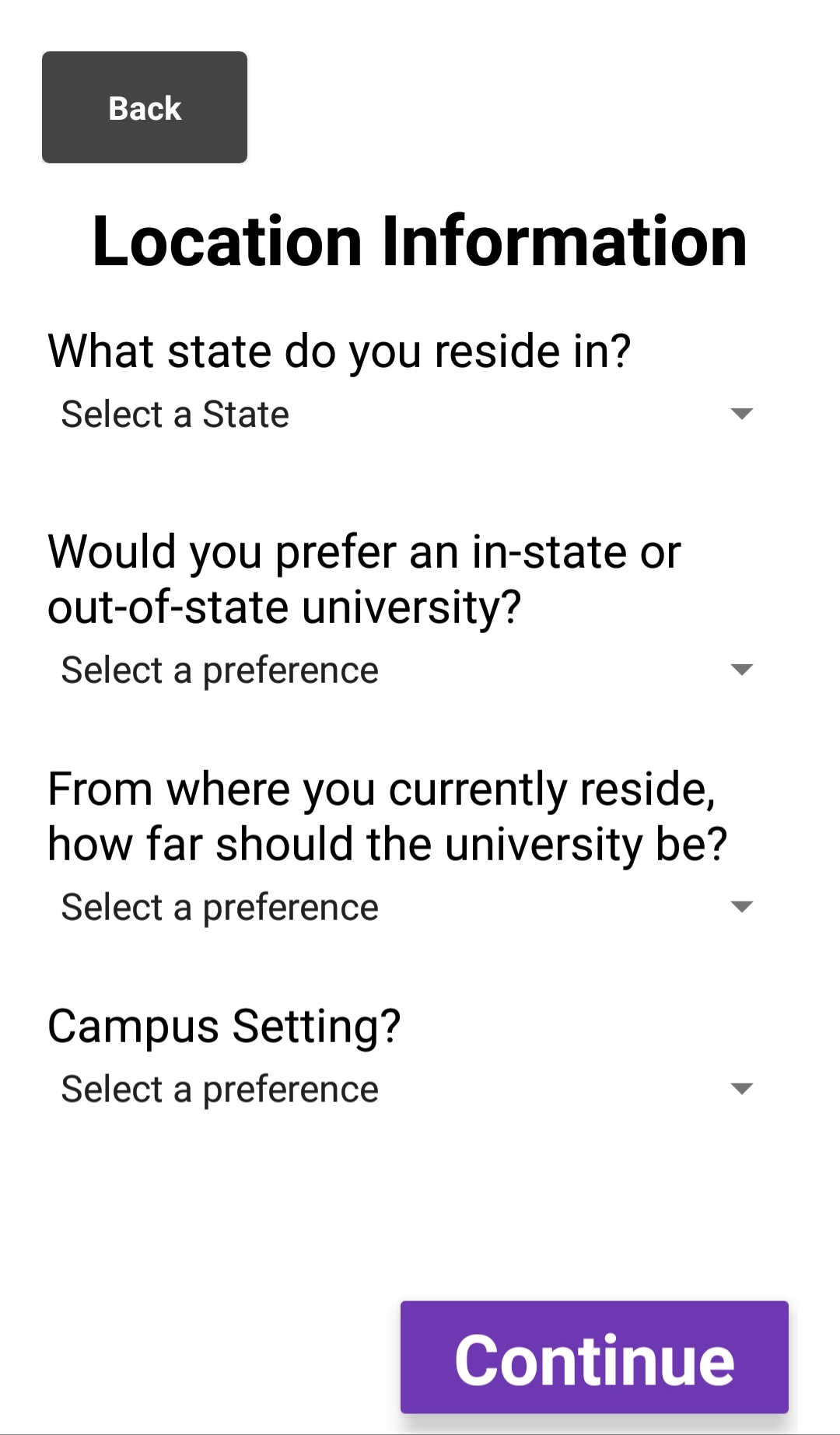
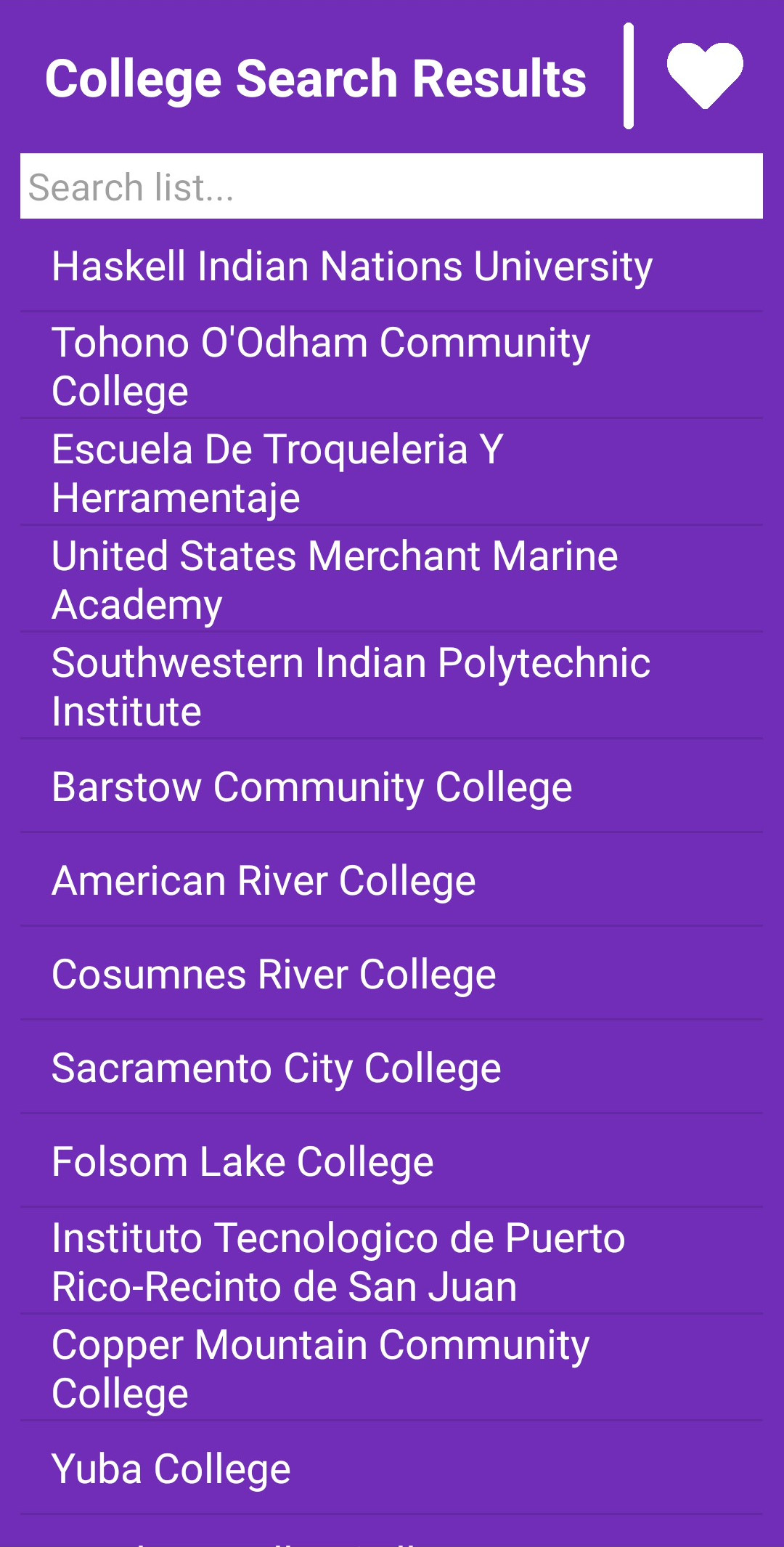
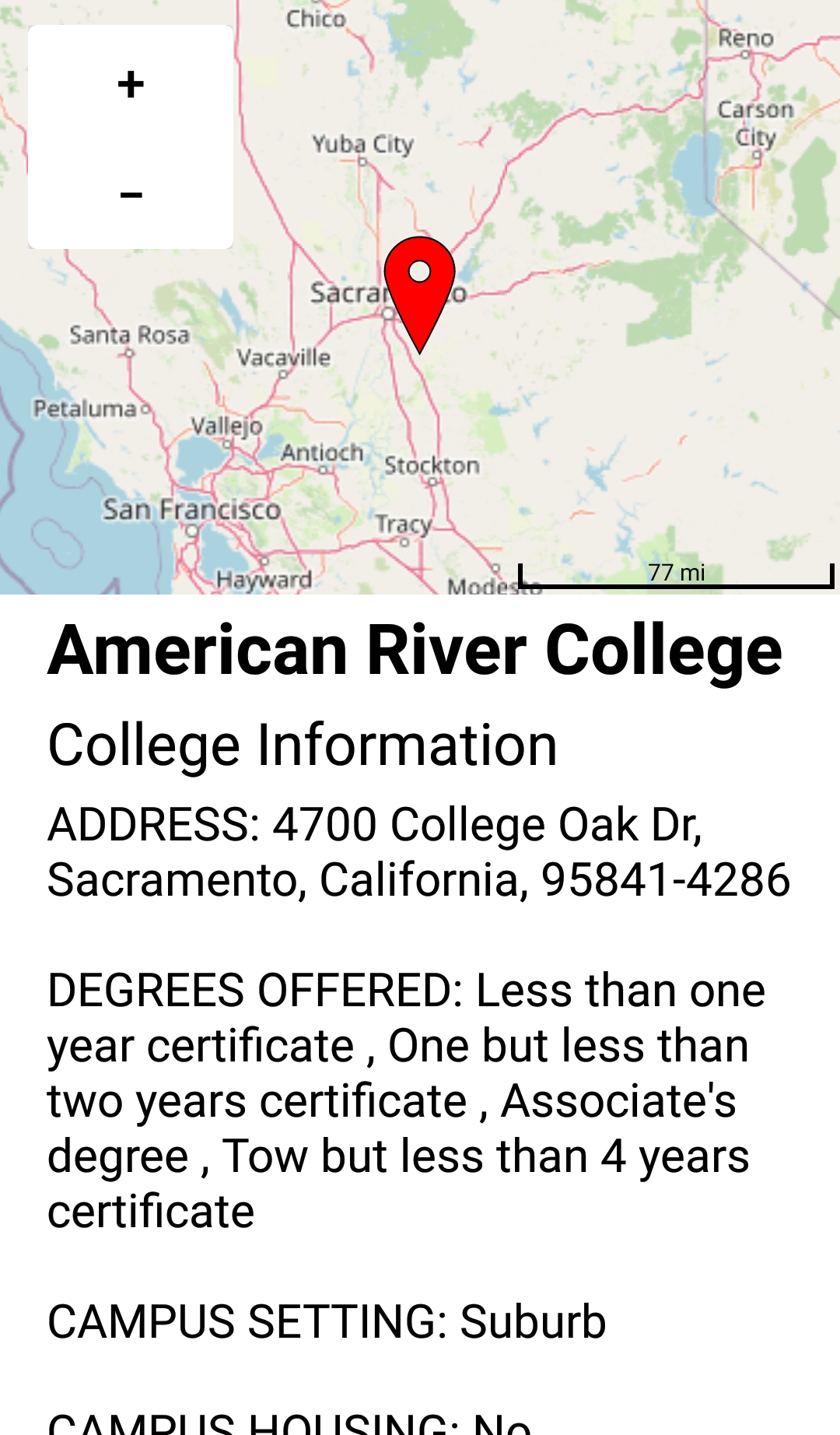
Back End Development
As important as front-end development is, our application would not work without a stable and reliable back-end. College Atlas uses user selections to sort and filter over six thousand post-secondary institutions to generate a custom list of matching colleges. The application then allows the user to look through matching institutions for information such as tuition, geographical location, and other campus information. If the user finds a college they want to learn more about, they can save colleges to be viewed at a later time. The following diagram illustrates how our application sorts the data.
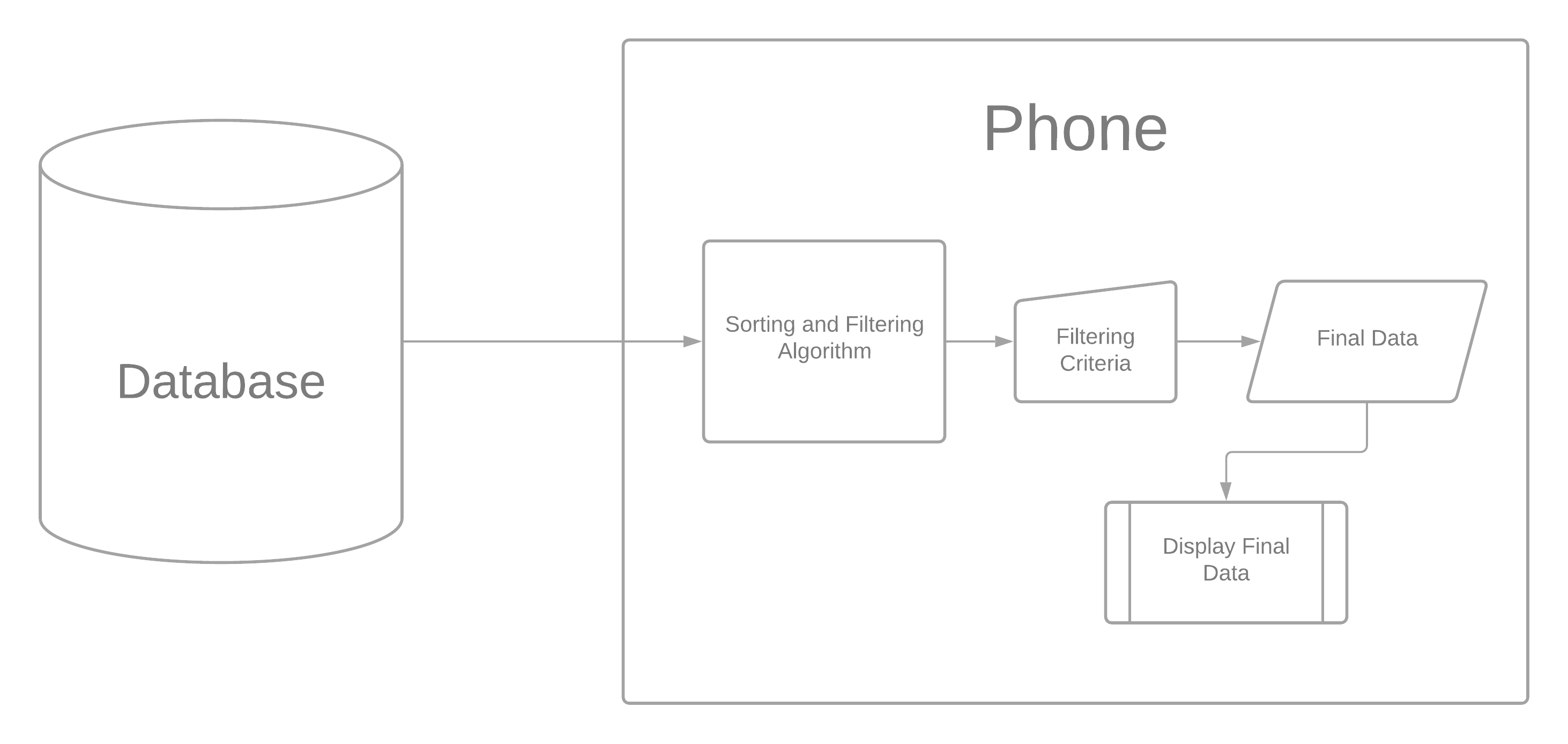
Submission
Video (Phase 2)
The following video is what our team produced during phase 2 of the project.
Video (Phase 3)
The following video was presented at the virtual pitch.
Source Code and Releases
The source code and releases of College Atlas can be accessed from the following link (image).
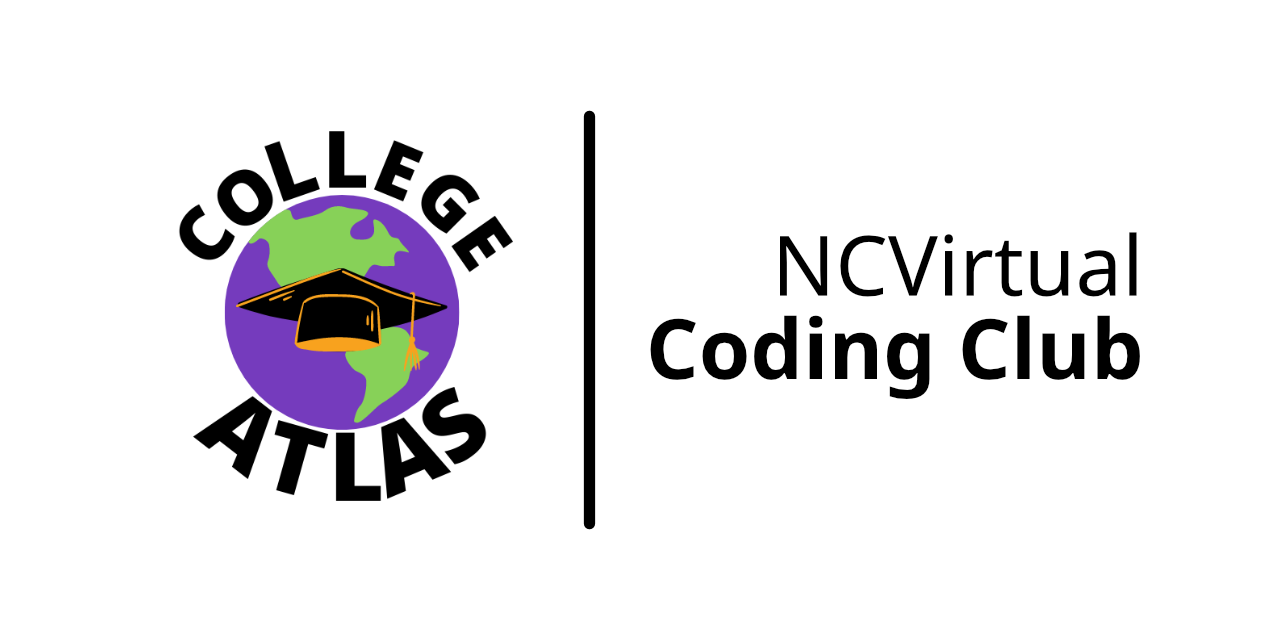
College Atlas on the NCVPS Website
NCVPS College Atlas Announcement
Conclusion
Unfortunately, our team did not win the competition. The cause of this outcome was our less-than-modern user interface, combined with a lack of many features we were planning to add. Even though this was a disappointment, our team did learn a lot. For example, we learned how to work as a team, plan a project, and communicate with each other without any in-person interaction. We also learned new platforms such as GitHub and MIT App Inventor, so we could properly code, share, and manage our program. From this experience, I feel that I have officially begun my journey to become a software developer, and this project will most certainly have a profound impact on my future.
Our goal remains the same, our team wants to further support students. For this reason, we plan to continue the development of College Atlas for the indefinite future.
